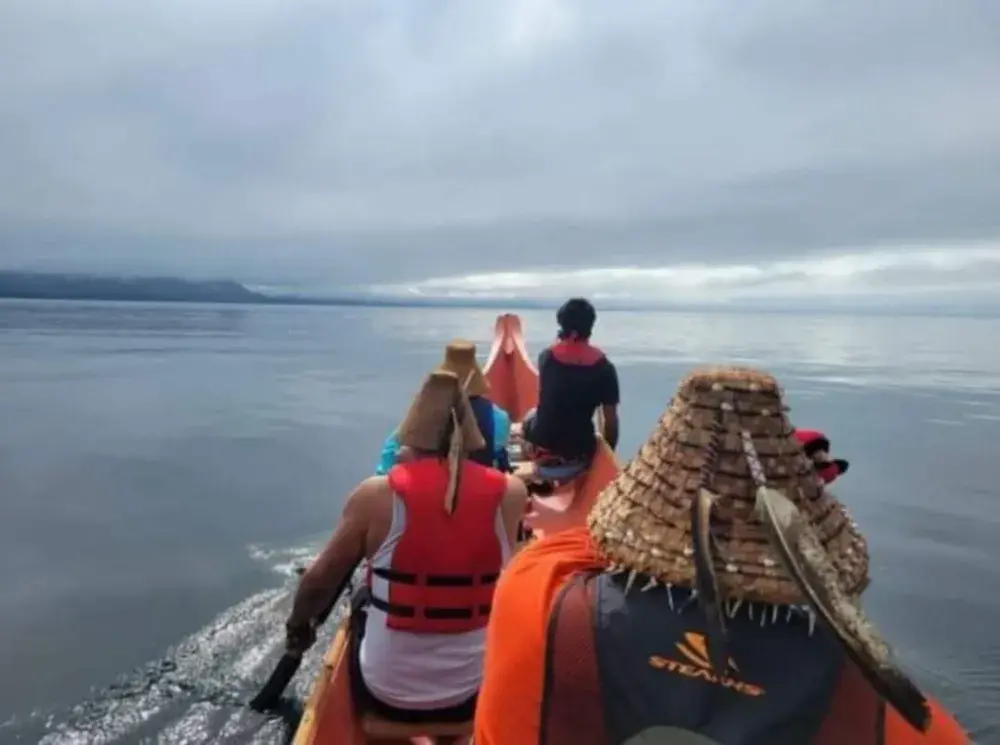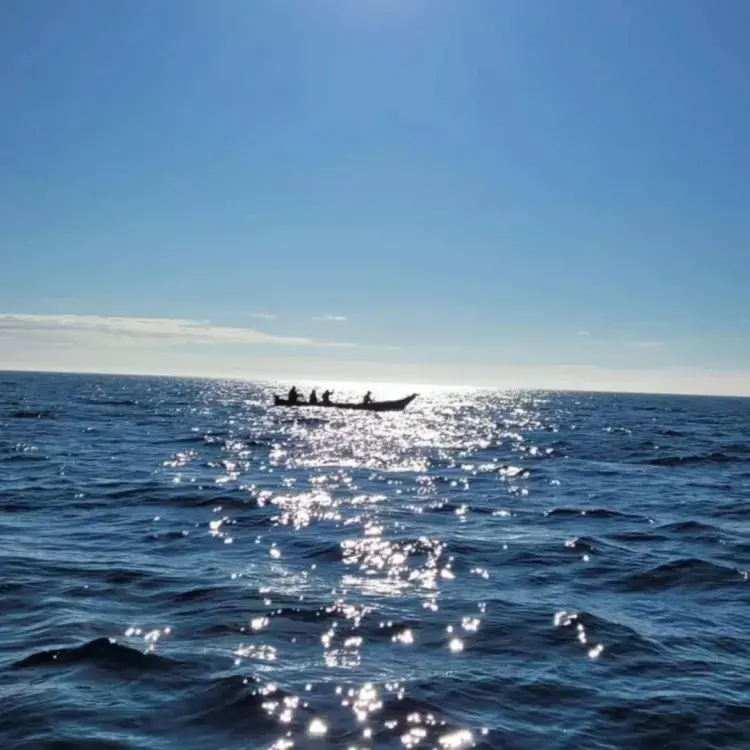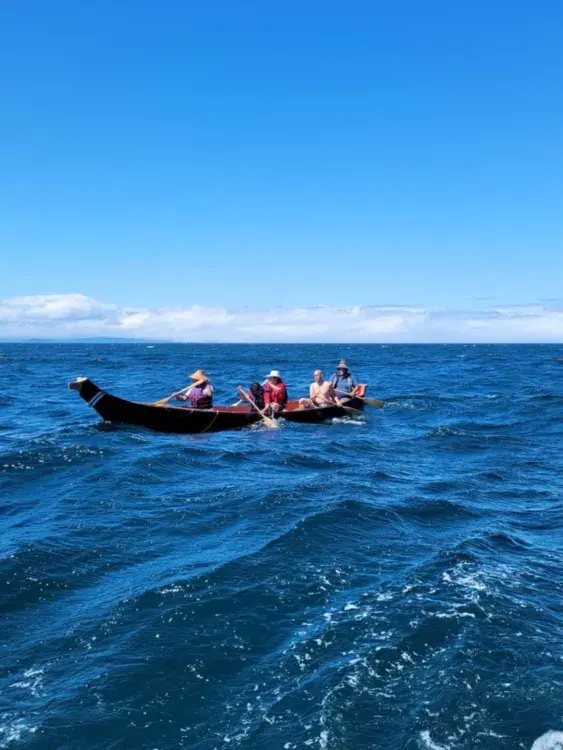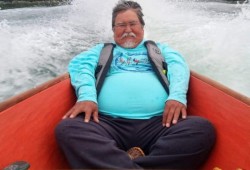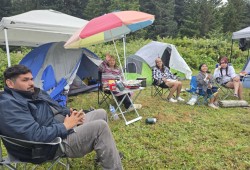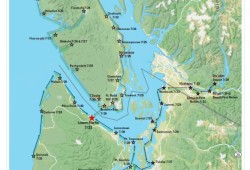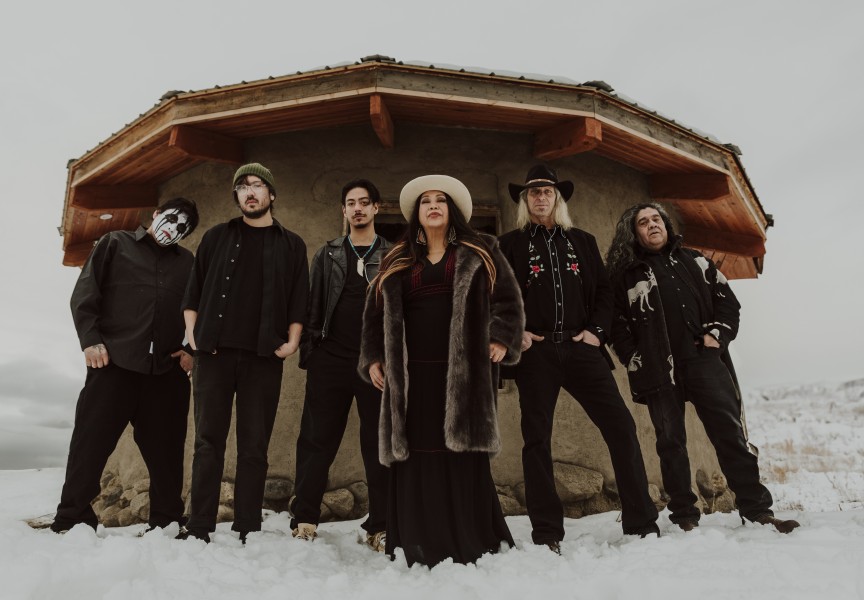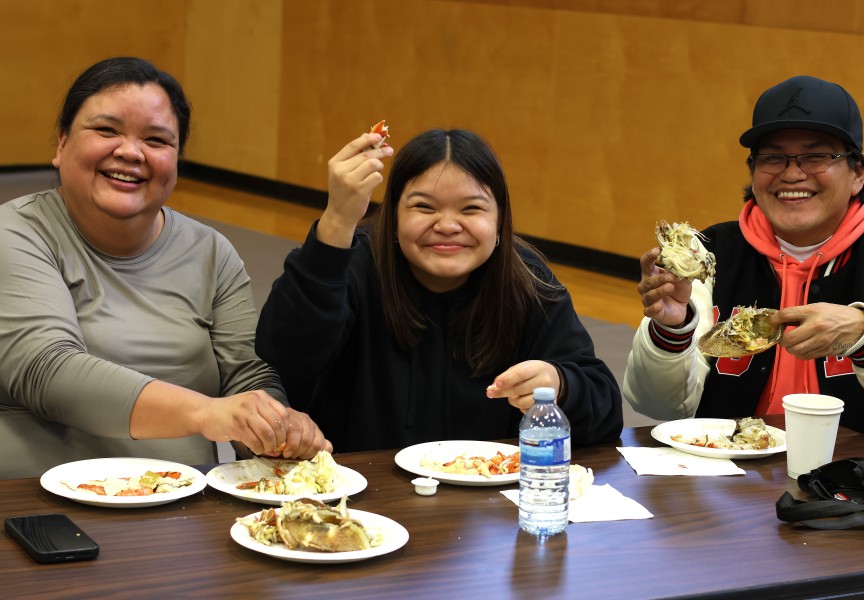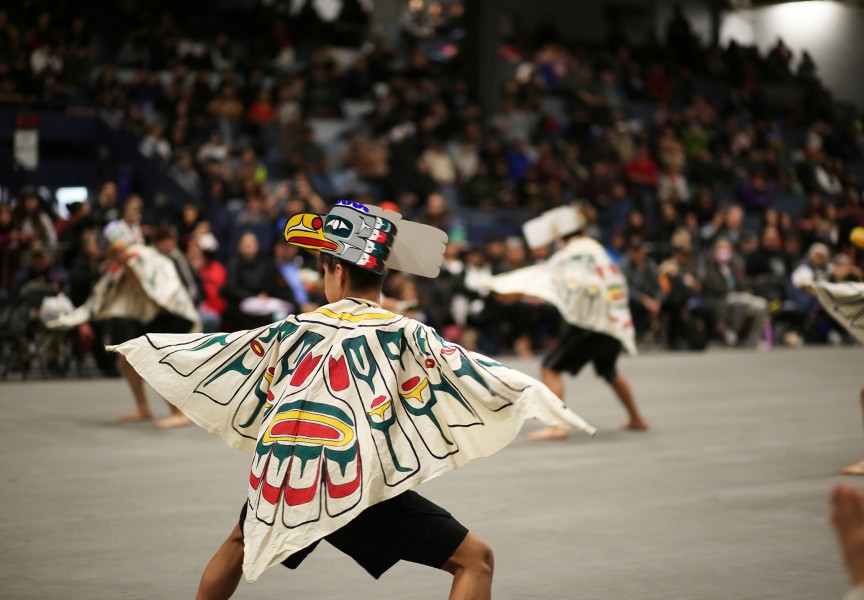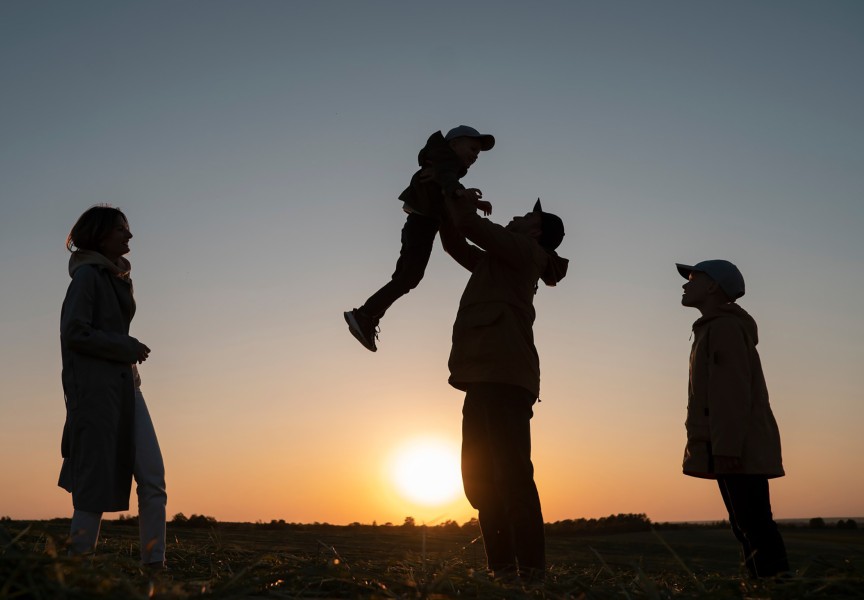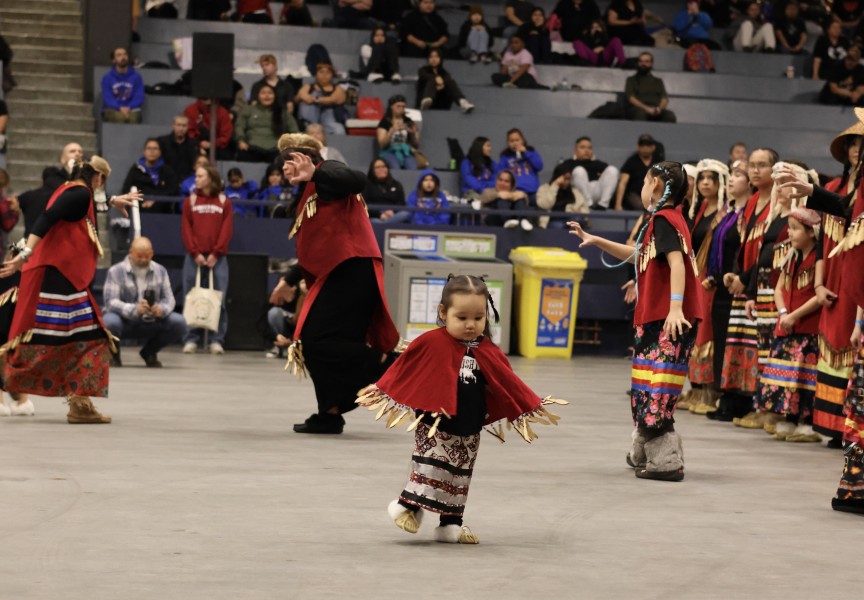In the early morning of Sunday, July 20, a Canadian crew of mostly Indigenous women will push off from the shores of Hesquiaht Harbour, marking the start of their roughly 350-kilometre Paddle to Elwha 2025 Canoe Journey.
Navigating the highway of their ancestors, the Hesquiaht First Nation’s crew of eight expects to land on the shores of the Elwha Klallam Tribe on the north coast of the Olympic Peninsula in Washington, U.S.A. on July 31.
“The reason why to leave early is I want to stay ahead of the wind,” said Hesquiaht Hereditary Chief Vince Ambrose, the crew’s skipper who sits at the back of the canoe. “Usually, it picks up later on in the morning. It’ll be a good wind. We’ll be going with it. It’ll be a westerly, northwest. It’s not going to be a big wind either. That’s what I was hoping for, good weather conditions.”
They are travelling from the farthest distance to join thousands of paddlers and over 100 tribal canoe families from across the Pacific Northwest for the region’s biggest Indigenous event of the year. Following the July 31 landing, there will be five days of protocol and celebration.
Hesquiaht’s first stop on their canoe journey is about a four-hour pull to the neighbouring Hesquiaht community of Hot Springs Cove. Then they’ll stop in the Nuu-chah-nulth traditional territories of Ahousaht, Tla-o-qui-aht, Yuułuʔiłʔatḥ and Huu-ay-aht.
“Because of the remoteness of our area, two or three of our crew couldn’t make it so we will pick them up along the way. That’s usually how it works. We pick up spares as we’re going,” said Ambrose. “By the time we reach Huu-ay-aht, my crew is pretty exhausted, so any help we can get is nice.”
Ambrose says the Paddle to Elwha is a fairly short journey compared to the others he’s been on. In 2017, he paddled over 700-kilometres from Hesquiaht Cove to Campbell River on the east side of Vancouver Island.
“I guess you could say I’m addicted to tribal journeys,” he said. “For the most part, I’m usually on a healing journey. Anybody that joins us is usually doing this for their healing journey. It helps not just myself, but other family members. Anybody that is going through a hard time it helps them a lot.”
Hesquiaht embarks on the Paddle to Elwha with both a support boat and vehicle. The team spends one or two nights camping at each nation they visit, and some of the crew that paddle will also switch and help the road crew or support boat.
Ambrose says it’s heartwarming to pull into each different nation and spend time with them.
“The Chief and all their members are singing their songs before we even land on the beach. It makes our people feel really good,” said Ambrose.
He’s unsure as to why his Hesquiaht crew, including Stephanie Charleson, Cora Ambrose, Carol-Anne Lucas and Kayla Lucas, are mostly women.
“That’s how it’s been pretty much every year,” said Ambrose. “My most reliable ones are female. I don’t know why that is. I have no idea. There has been interest from our male members, but when it comes down to it, it’s whoever shows up. If you’re there, you’re always welcome to help us get from point A to point B.”
Stephanie Charleson says she’s looking forward to paddling with a wonderful crew from Hesquiaht homelands in a traditional dugout canoe.
“The feeling of being in the cupac is so ancestral, no words, the calmness, the excitement all in one, it's like going back in time, a trance how my body just knows cause it's in our DNA,” said Charleson.
The theme for the 2025 Paddle to Elwha is, “Dams Removed-A River Reborn-Spirits Renewed”, and the event honours the legacy of Paddle to Seattle, a tribal journey hosted in 1989 that brought Indigenous communities from the Pacific northwest together, re-awakening the traditional practice of travelling in dugout canoes and carving canoes.

